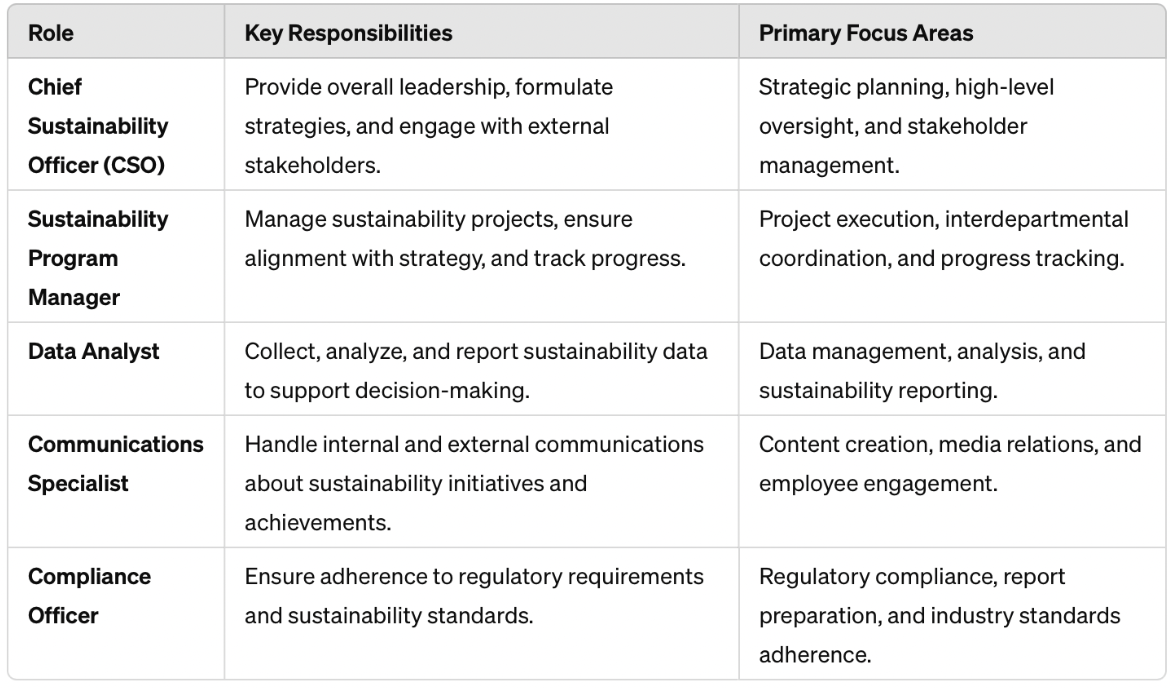Responding to Burnout Among CSOs:
Empathy and Solutions

The burnout crisis among Chief Sustainability Officers (CSOs), as highlighted in the recent Eco-Business article, is a significant and growing concern. The pressures on these professionals are immense, with many finding the role increasingly unsustainable. This article explores the issue and suggests ways to address it.
Addressing Burnout
- Enhance Support Systems: Companies should prioritize mental health and provide access to counseling services. Open dialogues about stress are crucial.
- Allocate Adequate Resources: Ensuring CSOs have sufficient resources and support teams can help manage the expanding scope of their roles effectively.
- Establish Clear Priorities: Empowering CSOs to set clear boundaries and prioritize tasks can help manage expectations and reduce stress.
- Promote Work-Life Balance: Flexible work arrangements and encouraging regular breaks can help CSOs manage their workload better and prevent burnout.
The Importance of Systems Thinking
One major issue is that many companies lack a systems thinking approach to sustainability strategy formulation. This approach is essential for understanding interconnectedness within an organization and developing sustainable solutions. Systems thinking enables companies to see the bigger picture, identify patterns, and address root causes rather than just symptoms.
The connection between CSO burnout and systems thinking lies in the ability to address underlying issues holistically. Without systems thinking, CSOs often face fragmented and overwhelming challenges. Systems thinking allows for:
- Holistic Perspective: Systems thinking allows organizations to consider the entire ecosystem of their operations, including environmental, social, and economic impacts.
- Interconnected Solutions: By understanding how different parts of the organization influence each other, companies can develop more effective and comprehensive strategies.
- Long-Term Planning: Systems thinking emphasizes long-term sustainability over short-term gains, aligning business practices with broader societal goals.
Embracing the Future-Fit Business Benchmark (FFBB)
Adopting the Future-Fit Business Benchmark (FFBB) provides a robust framework for sustainability, serving as an example of systems thinking in action:
- Align with SDGs: FFBB aligns with the United Nations' Sustainable Development Goals.
- Improve Long-Term Resilience: Focus on sustainable practices enhances long-term resilience.
- Drive Innovation: FFBB encourages innovative solutions to meet future societal needs.
Examples of FFBB Implementation
Better Energy’s vision is to become engineers of a sustainable future and in order to fulfil that vision, we need to understand when we are actually sustainable. The Future-Fit Framework is the only one out there, which clearly helps us understand when we are there – the Future-Fit approach is crucial for us – it is crucial for all business if we want a future within which we can all thrive.
Cora Olsen, VP, Head of Sustainability & Regeneration, Better Energy.
The Future-Fit Business Benchmark is quantitative, transparent, action-oriented, and built on robust systems science. Those features are all really important for an impact-focussed, science-based organisation like Plant & Food Research.
Roger Robson-Williams PhD, Chief Sustainability Officer, NZ Plant & Food Research.
Cora Olsen, VP, Head of Sustainability & Regeneration, Better Energy.
The Future-Fit Business Benchmark is quantitative, transparent, action-oriented, and built on robust systems science. Those features are all really important for an impact-focussed, science-based organisation like Plant & Food Research.
Roger Robson-Williams PhD, Chief Sustainability Officer, NZ Plant & Food Research.
Proposed Structure for CSO Roles
While many CSOs operate as a one-person band, a more effective structure could include:

Conclusion
Addressing burnout among CSOs requires comprehensive support, adequate resources, and a systems thinking approach. By leveraging frameworks like FFBB, companies can ensure their sustainability efforts are effective and resilient.
For more details, read the full article on Eco-Business here.
For more details, read the full article on Eco-Business here.
THIS ARTICLE WAS CREATED BY
ESG Matters
Founded by one of the sustainability pioneers Dr Glenn Frommer, ESG Matters specialises in ESG data analytics, intelligent sensing technologies and sustainability advisory. Since 2014, ESG Matters has been a creator of digital platform solutions to meet the needs of sustainable impact investing and green financing. Working closely with listed companies, SMEs, and various growing organisations, ESG Matters aims to address the global market through providing business process outsourcing (BPO) services and solutions to achieve the relevant sustainable development goals (SDGs) and building resilience to climate change.
To learn more, visit http://www.esgmatters.asia
To learn more, visit http://www.esgmatters.asia

